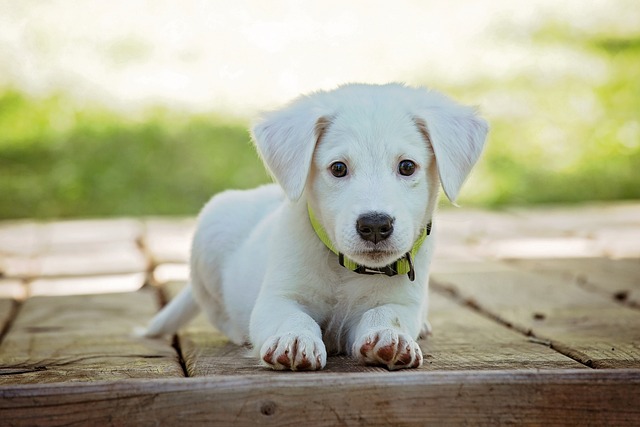
What is glaucoma in a dog?
You might notice your dog squinting more at mealtime or avoiding bright sunlight—these small changes could be early signs of a serious eye condition.
You’re scrubbing that third "accident" off your apartment floor this week, wondering why your usually well-behaved Lab keeps having emergencies. Or maybe your pup’s refusing breakfast despite devouring meals yesterday. Digestive trouble in dogs isn’t just messy—it’s a red flag something’s off. Let’s decode those tummy troubles so you know when it’s a minor hiccup or time to call the vet.
First, vomiting vs. regurgitation matters. True vomiting involves heaving and abdominal contractions—like your Collie expelling last night’s kibble onto your Barcelona apartment’s tiles. Regurgitation? It’s passive, undigested food sliding out minutes after eating. While regurgitation might signal eating too fast (common in rescue dogs with food anxiety), repeated vomiting demands attention. Watch the contents: yellow bile often means empty stomach irritation; grass fragments hint at nausea-driven grazing; coffee-ground textures? Emergency vet now—that’s digested blood.
Diarrhea clues hide in consistency and color. Soft-serve stools after sneaking trash might resolve in 24 hours. But watery explosions, mucus-streaked piles, or black/tarry feces signal inflammation or bleeding. Take photos—your vet will thank you. And never punish accidents! In Germany or Sweden, scolding a sick dog violates welfare norms. Instead, quietly clean with enzymatic sprays (available at EU pet shops) to prevent repeat marking.
Subtle signs scream discomfort too. Is your usually social Spaniel hiding under the bed? Does their back look hunched like a Halloween cat? Listen for gurgling gut sounds audible across your Paris studio—those “borborygmi” indicate gas or motility issues. Reduced appetite for more than one meal (especially in puppies) warrants concern. Other red flags: frantic grass-eating, excessive drooling (more than your Saint Bernard’s norm), or licking floors obsessively.

Lifestyle amplifies risks. Urban dogs in NYC or London scarf sidewalk debris—chicken bones, pizza crusts—triggering pancreatitis. Apartments with limited outdoor access mean quick "potty breaks," denying dogs time to fully empty bowels, leading to constipation. Always carry biodegradable waste bags; fines for uncollected poop reach €150 in Berlin or $250 in San Francisco. Post-scoop, check stool for worms (resembling rice grains or spaghetti)—a sign your deworming schedule needs updating.
Prevention ties to compliance. Rabies vaccines (mandatory across the EU and US) protect against deadly viruses causing neurological digestive havoc. But vaccines aren’t instant shields—avoid dog parks until 2 weeks after final puppy shots. For sensitive stomachs, skip shared water bowls at busy parks like London’s Hampstead Heath; giardia parasites lurk there.
Immediate vet help if you see:
Blood in vomit/stool
Bloated, painful abdomen
Lethargy with fever (over 103°F/39.4°C)
Unproductive retching (possible GDV—a lethal twist)
For mild cases? Withhold food 12-24 hours, then offer bland diets: boiled chicken/white rice or vet-recommended GI kibble. Pumpkin purée (not pie filling!) adds fiber. Hydration is critical—lift their neck skin; slow snap-back means dehydration. Use ice cubes if they refuse water.
Remember Mark’s Dachshund in Amsterdam? Repeated diarrhea turned out to be stress colitis from construction noise. A calming pheromone diffuser plus probiotic paste solved it. Your dog’s gut is a barometer—listen closely, act kindly, and keep that vet number handy.

You might notice your dog squinting more at mealtime or avoiding bright sunlight—these small changes could be early signs of a serious eye condition.

Let’s set the scene: It’s a sweltering Phoenix afternoon—105°F outside—and you rushed your 2-year-old Lab mix, Cooper, on a quick walk to “get it over with.”

Let’s get real: You’re in your Miami apartment, watching your 3-year-old Corgi, Loki, struggle to climb the stairs to your second-floor unit.

Many dog owners brush off occasional scratching as just “dog behavior,” but persistent itching often signals something more—like a food allergy.

You might first notice your dog scratching more than usual—chewing at their paws until the fur looks thin, or rubbing their face against the couch nonstop.

Let’s be real: You’re standing in your Chicago apartment, watching your 3-year-old Beagle, Max, huff and puff just to climb onto the couch.